Our Blog / Water Facts / Current PageWhen choosing a water filter system—whether for disaster relief or rural development projects—there are a number of key factors that warrant careful consideration. For truly successful deployment, we can look to global organizations like the World Health Organization (WHO) for indicators of the specific standards to seek out. Framed by their gold-standard guidance, in this article we are going to examine exactly what you should prioritize when sourcing a water filter in SOS readiness or for your next WASH project. And why is it so vital to choose a water filter system with all the right credentials? To paint this picture, let us step into an imagined scenario for a moment; one that is not so far from the experiences of a growing number of people. The increasing impact of flooding across the globe has been on your radar for some time, but didn't touch your own life until today. A flash flood hit, and the world around you has changed in a heartbeat. You've seen roads and homes destroyed, but also witnessed first-hand the phenomenal power of human compassion as people helped each other get to safety. But now, a new challenge has arrived. You are at a crowded evacuation center, and you can see that everyone is going to need support quickly in terms of water, food, and shelter. You know that drinking water is the most pressing concern—but, there is only one pump, and the water is coming up brown. How can you ensure that everyone's needs are met? Clean Water: Our Most Essential Resource When a crisis strikes, time is of the essence. While human beings can survive for several weeks without food, their need for clean water must be met within only a few days, and preferably far less. The WHO recommends sourcing a minimum of 7.5 liters per day per person of clean and safe water in such a moment as this. But, when the water available is contaminated, all are faced with an impossible choice: to risk the dangers of dehydration, or to risk potentially life-threatening illness by consuming water that isn't fit to drink. The dedicated work of WASH specialists, program managers, and international humanitarian agencies holds the power to prevent countless people being faced with a choice like this. Because, with the right water filter system to hand, the people whose very faces you saw in that imagined evacuation center wouldn't need to take a gamble on water quality after enduring a disaster. Crucially, as the frequency of environmental crises grows, this aspect of preparedness becomes even more critical. "It's not surprising that we're seeing really large floods that are potentially unprecedented,” Beth Tellman of the analytics firm behind the Global Flood Database explained to CNN, before continuing: “This is exactly what the climate models have predicted.” And of course, flooding is only one of the disaster types that can result in a shortage of potable water. So what are the essential elements to check off when choosing an SOS water filter system? Essential and Useful Features in Water Filtration and Purification Technology If you try to picture a water filter for emergency use—one that you'd take with you to that emergency shelter—what are the key qualities that you would hope it embodied? It's a complicated question to answer because of the unpredictable nature of any disaster. However, when armed with a checklist, it becomes much easier to make a versatile choice. Here are seven questions to ask about any water filter or water purifier intended for WASH or SOS use: 1. What treatment capacity is needed? An array of water purification and filtration methods can be harnessed when disaster strikes, but each will provide different core capabilities, while the nature of the water's contamination will steer what treatment capacity is required. In a flooding scenario, local water is often contaminated with raw sewage, raising a risk of the presence of bacteria, protozoa, and viruses. Water may be turbid, making solar decontamination more difficult, or it may have been exposed to organic or inorganic chemical contaminants. Having a water test kit available as part of disaster readiness preparation can allow those tasked with treating water to better understand what steps to take to bring water quality to a safe standard and whether more than one treatment type may be necessary. Ultimately, the more comprehensive the filtration capacity, the more dynamic the effectiveness of the water filter system can be. 2. How complex is the setup? The value of simplicity is never more poignant than in a crisis. While water filtration systems such as the bio-sand filter may be effective at removing around 98 to 99% of bacteria and protozoa, its setup is time-consuming and manually demanding, and requires a diversity of materials. In contrast, an Ultrafiltration (UF) device can be stored in ready-form and used immediately, while offering effective removal of not only protozoa and bacteria but also viruses. 3. Can the water filter system be easily operated by anyone? Many systems of water filtration require a degree of expert knowledge to be used correctly. Determining the dosage when applying a chlorine or chemical coagulant water purification treatment can be challenging, while the biofilm within a bio-sand filter needs to be actively monitored. Aspects such as manual difficulty and operational complexities are vital when choosing an emergency water filtration and purification approach. Providing comprehensive and easy-to-understand instructions can help ensure that in a moment of need, the water technology can be used effectively. 4. What speed of water production is required? An effective water filter system is only as valuable as its capacity to meet the requirements of those in need. The process of improving water quality cannot be too slow or the volume that can be handled too little—there is no use in only being able to treat enough water for ten people when 100 are thirsty. Traditional approaches to improving water quality such as ceramic filtration or the three-pot method require hours or even days to complete. In contrast, activated carbon water treatments require only 10-12 minutes to be effective, while Ultrafiltration devices can be used to process hundreds of liters of water per hour. 5. What are the portability factors in play?
In the midst of a natural or man-made disaster, it may become necessary to take the water filter system to wherever it is needed most with limited transport options available. Compact, lightweight water filtration options allow responders to solve water quality challenges quickly within extreme settings. These can include chlorine, activated carbon, and chemical coagulant treatments that can be added to water containers on the move; or contemporary Ultrafiltration devices that weigh very little, making them ideal to carry on the shoulder. 6. Does this technology offer the longevity you need? In remote locations, resupplying water purification resources or repairing water filtration devices can be tricky. At the same time, an investment in the resources required to react when disaster strikes is rarely made lightly—making storage life, longevity, and robustness essential considerations. This makes quality construction, minimal resupply requirements, and easy storage all equally high-value qualities to look for in your chosen water filtration technology. 7. What operational requirements need to be catered to? In the midst of an SOS scenario, electricity supplies can fail, often leaving those who require clean water isolated with minimal resources. This makes water treatment systems that rely on electrical connection such as reverse osmosis purifiers redundant. In contrast, favoring systems that can be operated manually or utilize solar/thermal energy ensures that the equipment and treatments available will serve when they are needed most. A Comprehensive Approach When Choosing a Water Filter for Emergencies We understand how vital it is to approach disaster preparedness with dynamism when it comes to delivering in-the-moment water quality solutions. This urgent need is what propelled us in the development of the ROAMfilter™ Plus, an Ultrafiltration device that weighs only 2.5kg and holds the power to filter over 200 liters per hour in manual operation and up to 400 liters per hour with gravity feed or electric flow. We are dedicated to delivering on each of these critical factors:
Tested to the WHO's exacting standards and trusted by WASH specialists around the globe, the ROAMfilter™ Plus is designed to provide communities with safe and clean water in minutes, whenever the need arises. To learn more about this product and how we can comprehensively support your SOS planning efforts, schedule your free consultation with our team today. Free Resource Available: Download the 7-Question Checklist For Choosing An Emergency Water Filter here.
18 Comments
23/8/2022 08:23:46 pm
It captivated me the most when you shared that the need for clean water should be satisfied within only a few days. My friend wants to ensure that they are drinking safe water. I think they should add a water treatment system to ensure they are using clean water.
Reply
22/9/2022 03:52:40 pm
I adore the statement that the proper usage of many water filtration devices necessitates some level of specialized understanding. In my home, I want a water filtering system. I will make a call to a water filter installation professional to assist me with installing the system.
Reply
27/9/2022 10:20:16 am
It's great that this article talked that there are options for any water treatment issues in different ways. Yesterday, my best friend told me that he and his wife were hoping to find a house water filtration that could provide health-safe water in their home to prevent having health problems, and he asked if I had any idea what would be the best option to do. Thanks to this informative article, I'll be sure to tell him that it will be much better if he consults a home water treatment service as they can help provide more information about home water treatments.
Reply
5/10/2022 09:43:11 pm
I agree. The main importance of water filtration is to prevent water-related illnesses and diseases. Infants, elderly adults, and people with poor immune systems are more highly susceptible to experiencing adverse effects due to contaminated water from the tap.
Reply
14/10/2022 03:19:03 pm
I appreciate you pointing out that the proper operation of many water filtration devices necessitates some level of specialized understanding. I want a water system in my yard, especially where my pool is. I'll get assistance from a water systems expert.
Reply
28/10/2022 01:17:07 am
My cousin has been thinking about getting her water treated because it tastes pretty bad right now. She isn't sure what is in it, but really wants to get it working properly because it really bothers her. I'll be sure to tell her about how she can get a water filter that is more effective if she understands what is in the water with a water test.
Reply
10/12/2022 12:26:39 am
I love how you call clean water our most essential resource. I completely agree. I've been thinking about getting a water purifier for the home since we don't know how old these pipes are. I'll have to look into finding a company I can work with the buy and install a water purifier.
Reply
13/12/2022 12:16:12 am
I want to make sure that my home has clean water to drink. It's good to know that you can get a water filter that filters all the water in the house! That's definitely something worth getting a professional to install for me.
Reply
30/1/2023 06:20:39 pm
It's great that you elaborated that humans could survive starvation by having a water supply. The other day, my friend told me that he and his wife were hoping to find a home water filtration that could provide health-safe water for their residence. He asked if I had any idea what would be the best option for long-lasting water treatment. Thanks to this informative article, I'll tell him it will be much better if he consults a home water filtration system service as they can help provide details about home water treatments.
Reply
I appreciate that you explained how one must be an expert and have the right knowledge to use a water filter system properly. In that case, hiring a professional for a water filter system installation is a must if we want it to actually work and protect our family from any health issues. We just really need one in our home now that we are expecting our first baby, so our resources have to be safe for a newborn once I give birth.
Reply
15/2/2023 01:24:04 pm
Thanks for pointing out that one should have a level of expertise when it comes to using the system correctly. In that case, it is a good idea to ask water treatment solutions regarding the best option we should get and let them install and maintain it for us in the long run. We just really need to ensure that our sources are clean, because we have kids together with us now that we moved to the house my parents passed down to me.
Reply
25/3/2023 01:14:00 pm
I find it interesting when you said that about 7.5 liters of clean and safe water should be accessible for each person according to the WHO. In that case, I should definitely get a water treatment system installed in our home. Doing so will ensure that we always have enough safe drinks, especially when we have toddlers at the moment.
Reply
21/10/2023 02:37:12 pm
Thanks for sharing this informative article which highlights the critical importance of having a versatile water purification and filtration system in disaster preparedness. Indeed, disasters can bring about various water contamination challenges, and it's crucial to tailor the treatment approach accordingly.
Reply
20/12/2023 12:36:48 pm
Treatment capacity is obviously a critical factor in any water filtration device, and it's great to see that the ROAMfilter™ Plus can filter over 200 liters per hour in manual operation and up to 400 liters per hour with gravity feed or electric flow. Overall, it's clear that the ROAMfilter™ Plus is a well-designed and effective solution for delivering clean water in times of crisis. Thanks for sharing this information!
Reply
1/5/2024 11:45:48 am
Family lawyers in Brisbane have been a true lifesaver for me and my family. Going through a tough divorce was undoubtedly one of the most challenging times in our lives, but having a compassionate and knowledgeable legal team by our side made all the difference.
Reply
1/5/2024 12:28:28 pm
Installing a water filter is a proactive step towards ensuring the quality and safety of your drinking water. Whether you opt for a simple pitcher filter or a comprehensive whole-house system, the benefits of clean, filtered water are undeniable.
Reply
Leave a Reply. |
Want more?Click below to see what other blog topics might peak your interest



Water Facts
|
- About Us
- Products
- Solutions
- Resources
- Get Involved
-
Blog
- The Global Water Situation
-
Facts about Water
>
- Water supplies for crisis
- WaSH During Emergencies
- Well Water Cleaning and Filtration Guide: Southeast Asia
- Gravity-fed Water Systems: Water Purification and Filtration setups in Southeast Asia
- A Guide to Rural Rainwater Harvesting and Filtering
- Water Shortages and Their Effect on Children in Rural Schools
- WaSH Planning and Design Framework Resources for Indonesia and the Philippines
- Rural Community Water Supply: Water Systems in Villages
- Info on our Products
- Impact Stories
- Upcoming & Past Events
- Contact
- Store
- About Us
- Products
- Solutions
- Resources
- Get Involved
-
Blog
- The Global Water Situation
-
Facts about Water
>
- Water supplies for crisis
- WaSH During Emergencies
- Well Water Cleaning and Filtration Guide: Southeast Asia
- Gravity-fed Water Systems: Water Purification and Filtration setups in Southeast Asia
- A Guide to Rural Rainwater Harvesting and Filtering
- Water Shortages and Their Effect on Children in Rural Schools
- WaSH Planning and Design Framework Resources for Indonesia and the Philippines
- Rural Community Water Supply: Water Systems in Villages
- Info on our Products
- Impact Stories
- Upcoming & Past Events
- Contact
- Store

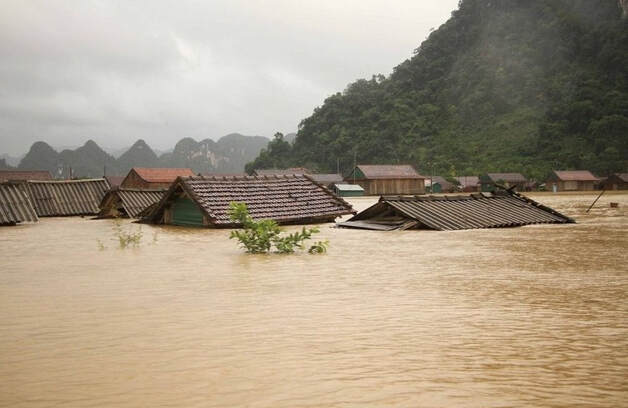
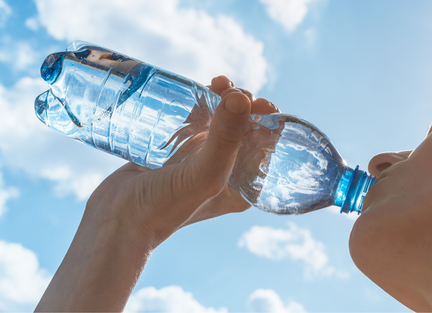
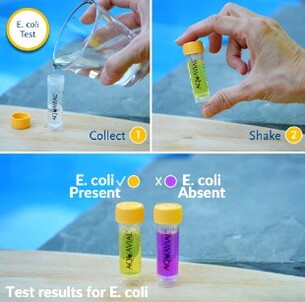
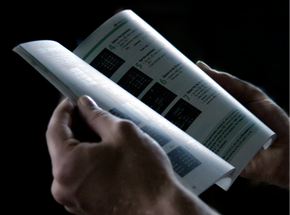
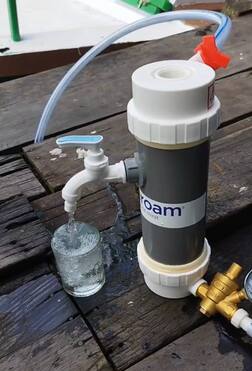
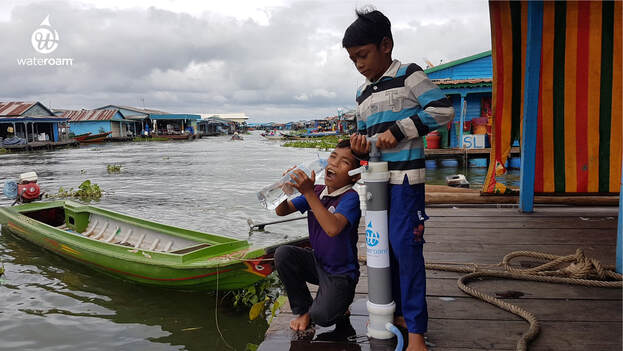
.jpg)